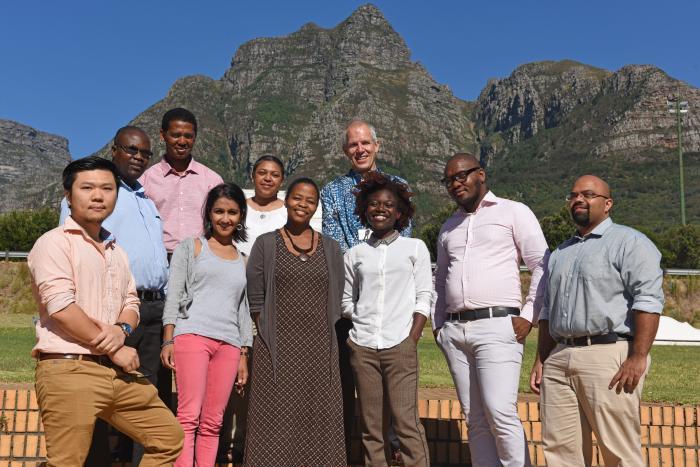Building a pipeline for UCT's professors of the future
05 February 2016 | Story Abigail Calata. Photo Michael Hammond.
The Next Generation Professoriate, a UCT programme aimed at advancing the development of black and female academics is in full swing. Abigail Calata sat down with programme director Professor Robert Morrell to find out more about this initiative aimed at contributing to the transformation of institutional culture.
Q: How did the programme come about?
The idea for this programme came to me in the second half of 2014, around the time that the funding for mid-career support at UCT in which I was involved started drying up.
While considering what my next move would be I was confronted with data on the racial demographic inequalities of the professoriate. I found them to be worrying, thought they should be addressed and felt that I could make an important contribution in this area.
The work I was doing to support mid-career academics via the Programme for the Enhancement of Research Capacity (PERC) was brought into conjunction with national developments – the focus has been on demographics in higher education for quite some time – and the institutional information that there were very few black academics at the levels of professor and associate professor. I set about writing a proposal for which I eventually obtained funding.
Q: Who funds the programme?
A: The Vice-Chancellor's strategic fund to the tune of more than R1 million. This is an example of UCT money being used for UCT developmental ends.
It strikes me there is a commitment from UCT to properly fund this initiative even in a time of austerity. This makes it a lot more sensitive because it is perceived that some people are getting access to funding while others are not.
Q: What is your role as director?
A: I conceptualise and develop the programme's activities and also serve as a mentor and facilitator. The programme is a continuation of my work that focussed on providing support for mid-career academics.
UCT has been a pioneer in academic staff development and in particular research development. Previously, I coordinated PERC in the Research Office. It was the first programme of its kind in the country. Over a five year period its members produced 13 books, 17 book chapters and 46 journal articles. There were no membership criteria other than being mid-career and anybody could apply for support.
Prior to that the Emerging Researcher Programme (ERP) assisted huge numbers of staff. Close to 1 000 academic staff members have participated in that programme.
Q: How were Next Generation cohort members selected?
A: We used the criteria from the NRF L-rating, which includes black researchers, female researchers, those employed in higher education institution that lacked a research environment and those who were previously established as researchers and have returned to a research environment.
Those criteria were handed to the faculties, who were asked to apply them as they saw fit. The result was that we got 35 cohort members.
Because we were starting out it made most sense to distribute the NGP places evenly among the faculties, but the faculties differ greatly in size and thus it was difficult. We set a target of five cohort members per faculty.
Q: Why are there no disabled cohort members?
A: Being disabled is not one of the L-rating criteria. We had a request to reconsider the criteria we used to select cohort members. I am obviously sympathetic to the plight of disabled academics and recognise that disability is an issue that UCT as a whole should be engaging with.
Q: How do you feel about the composition of the cohort?
I think we've struck a decent balance though there are some costs and omissions, which we will address in time. The balance is between those faculties and individuals who wanted to be part of the project and trying to have an even spread across the university.
It's painful to confront the fact that some people feel excluded. Unfortunately it is the nature of academic life that the resources are always in short supply, there is always competition and somebody will always be excluded. As much as we pursue an inclusive, egalitarian approach, we are operating in a resource-poor environment, where we can only do so much. I feel we're doing really well under the circumstances, which are politicised at many levels.
Q: Why were foreign academics included?
Personally I feel very uncomfortable in a context of xenophobia in South Africa from excluding somebody on the grounds that they are not from South Africa. Cohort members include staff who were born in Zimbabwe, Zambia, Swaziland – who come from neighbouring countries and in some ways have very similar histories to our own. It feels bizarre that you would even contemplate excluding someone on those grounds and yet those are the kinds of questions that are asked. Personally I am offended by such questions. What about Ubuntu and generosity and having a shared humanity? UCT is an Afropolitan university, which should not exclude Africans because they are not from South Africa.
Read more about the Next Generation Professoriate
 This work is licensed under a Creative Commons Attribution-NoDerivatives 4.0 International License.
This work is licensed under a Creative Commons Attribution-NoDerivatives 4.0 International License.
Please view the republishing articles page for more information.










